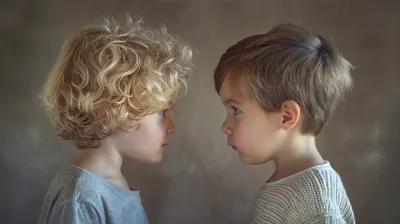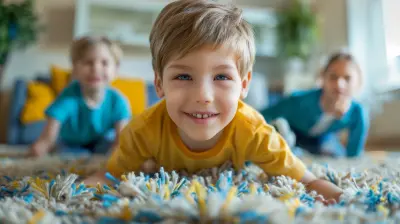Exploring the Role of Humor in Child Development
14 June 2025
Let’s face it—parenting is no joke. But if there’s something that can make all those sleepless nights, spilled juice boxes, and surprise crayon murals a bit easier to handle, it’s laughter. And guess what? Humor doesn’t just keep us sane—it plays a massive role in how our children grow, think, connect, and thrive. So, let’s talk about the real superpower every child (and parent) needs: humor.
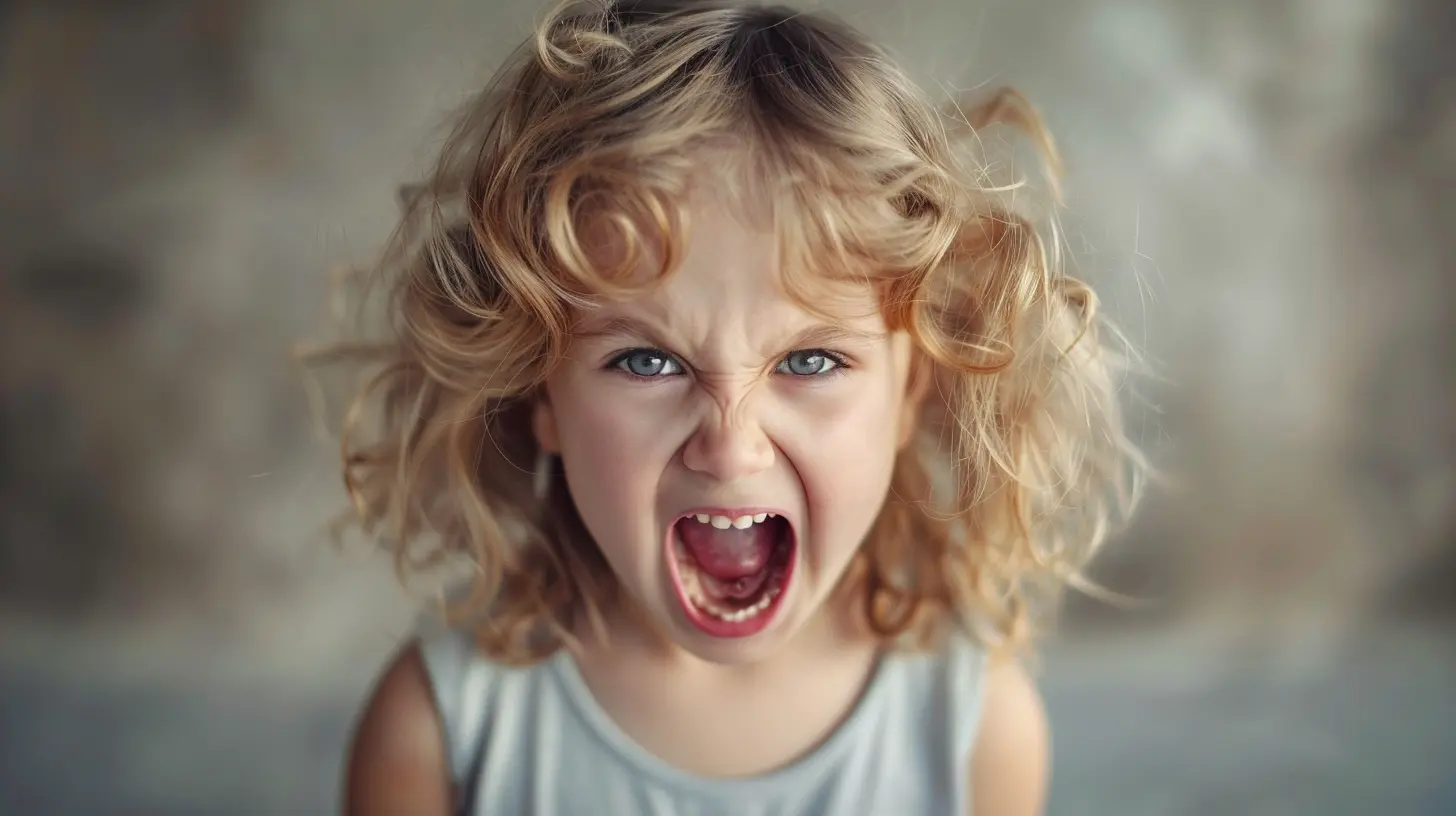
What Is Humor, Really?
Before we dive into how humor helps kids develop, let's pin down what humor actually is. In simple terms, humor is the ability to perceive, enjoy, or express what is comical or funny. But for kids, it’s way more than a few giggles. It’s how they make sense of the world, understand social cues, and even cope with tough emotions. Think of humor as a mental jungle gym—it flexes all sorts of cognitive muscles at once.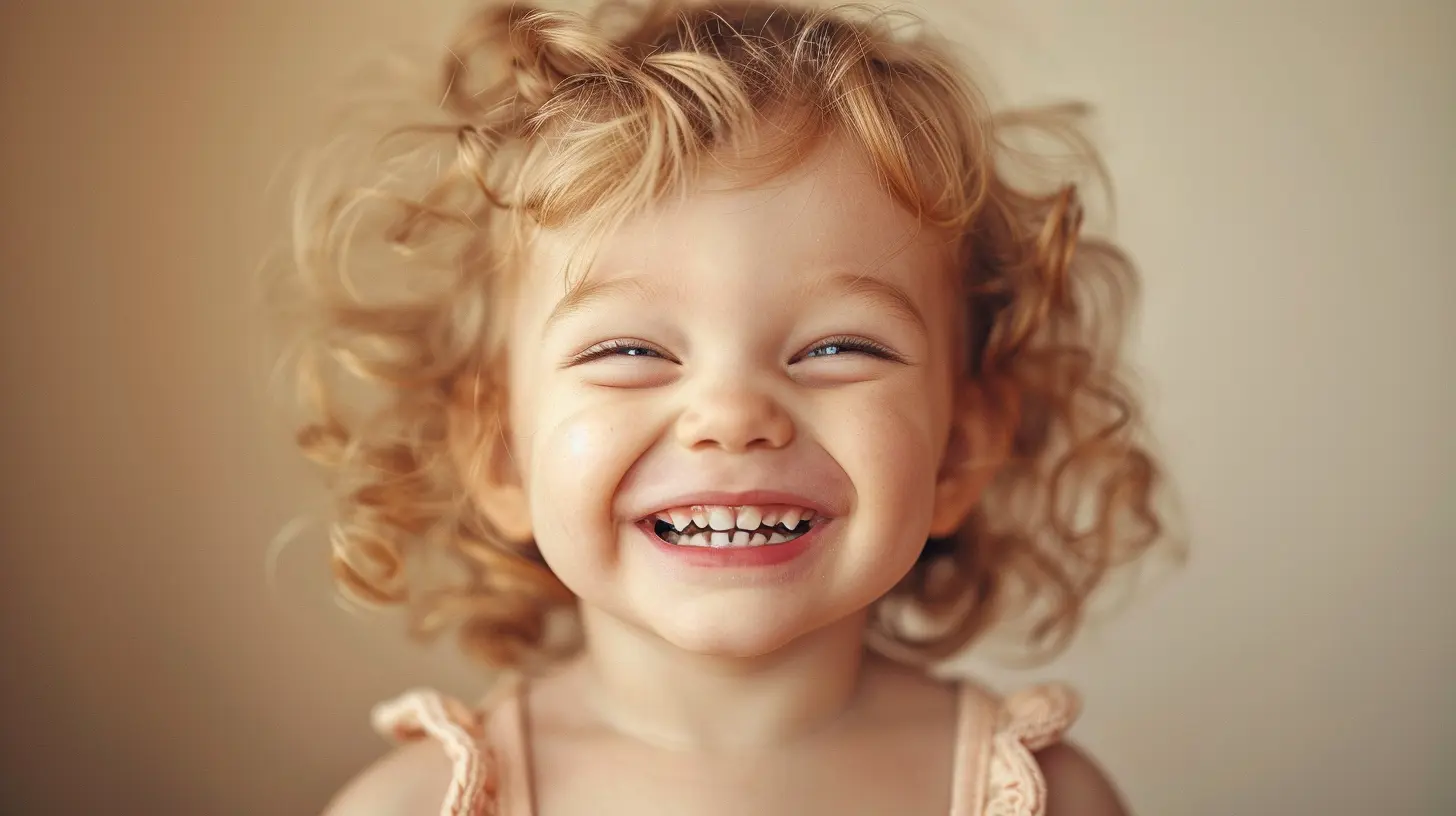
When Do Kids Develop a Sense of Humor?
Have you ever blown a raspberry and watched a baby erupt in laughter? That’s humor in action. Babies respond to funny voices and silly faces as early as 6 months old. Toddlers start experimenting with humor by mislabeling things ("That’s a cat!" while pointing to a shoe), not to be defiant—but because they’re realizing how language and reality connect.As kids grow, their sense of humor matures. From slapstick and knock-knock jokes in early childhood to sarcasm and wordplay in the tween and teen years, humor evolves right along with cognitive development. It's kind of like building a funny bone—one giggle at a time.
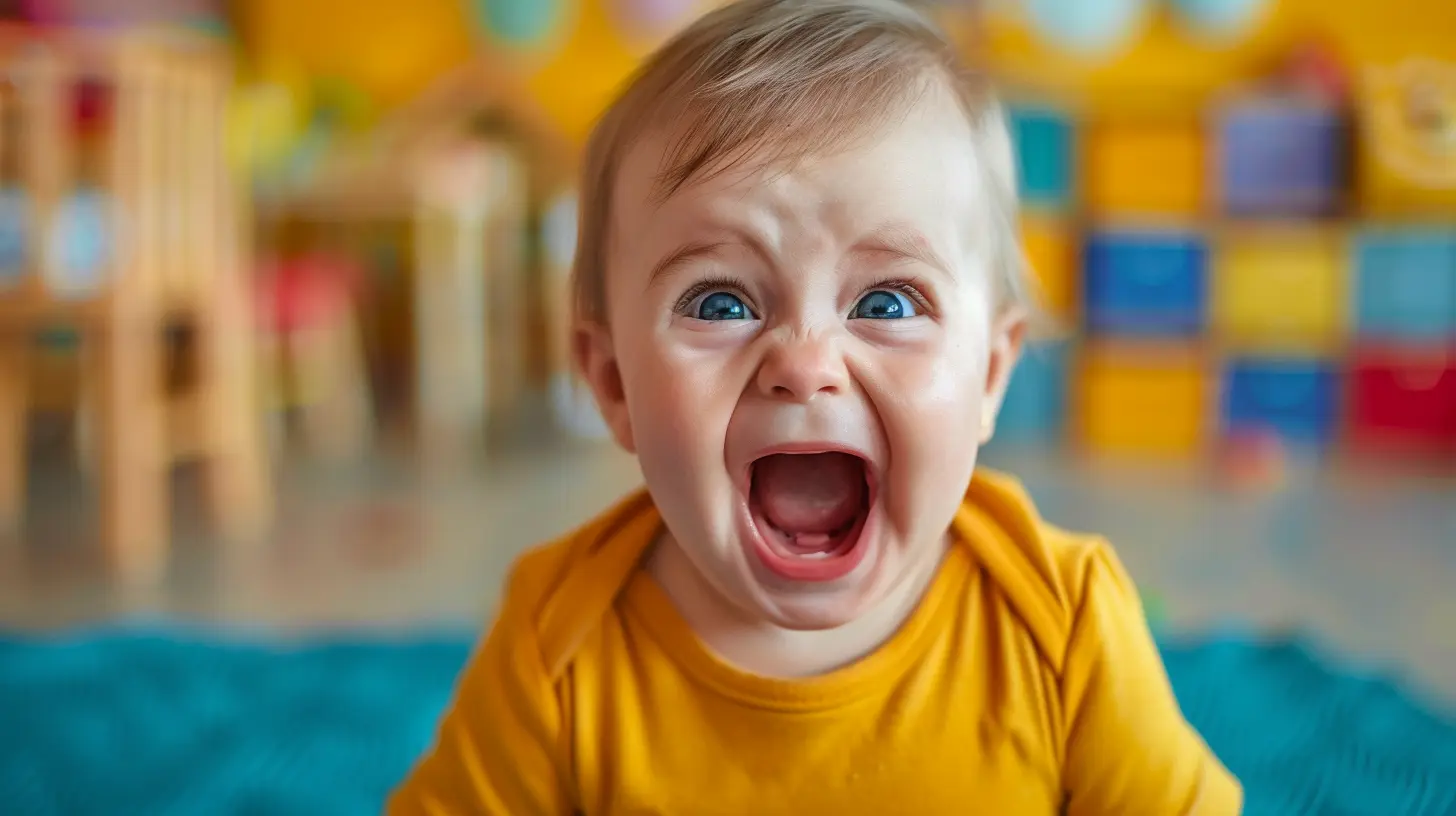
The Science Behind Laughter: More Than Just Fun
Humor isn’t just about cracking up. It’s doing a lot of heavy lifting behind the scenes. Let’s break down how humor helps your child’s development:1. Boosts Brain Power
Did you know that getting a joke involves a lot of brain work? Kids need to understand language, timing, context, and incongruity. In fact, decoding a joke is like solving a mini puzzle. When a child understands humor, they’re flexing their cognitive skills—think critical thinking, abstract reasoning, and even memory.Humor is a natural brain booster. And honestly? That’s one study session your kids won’t complain about!
2. Builds Emotional Intelligence
Emotional intelligence isn’t something we’re just born with—it’s learned. Humor helps kids understand and express emotions. A shared laugh can ease anxiety, reduce stress, and strengthen resilience.Picture this: Your child is embarrassed after a slip-up at school. But they laugh about it with their friends instead of spiraling into shame. That’s emotional maturity, sparked by humor. It’s like emotional armor (but way lighter than actual armor… and way more giggly).
3. Strengthens Social Bonds
Ever notice how kids flock to the “funny kid” in class? That’s no accident. Humor is social glue. It breaks the ice, fosters connection, and builds relationships. Telling a joke successfully or laughing at someone else’s requires empathy and timing—two big-time social skills.Kids who use humor effectively tend to be more likable and cooperative. They learn to handle conflict better, too. After all, it’s hard to argue while giggling.
4. Encourages Creative Thinking
Humor often relies on looking at things from a new angle—turning the expected on its head. This kind of mental flexibility drives creativity.Whether it’s rewriting the end of “The Three Little Pigs” or making up their own knock-knock jokes with bananas in them, kids stretch their imagination every time they try to be funny.
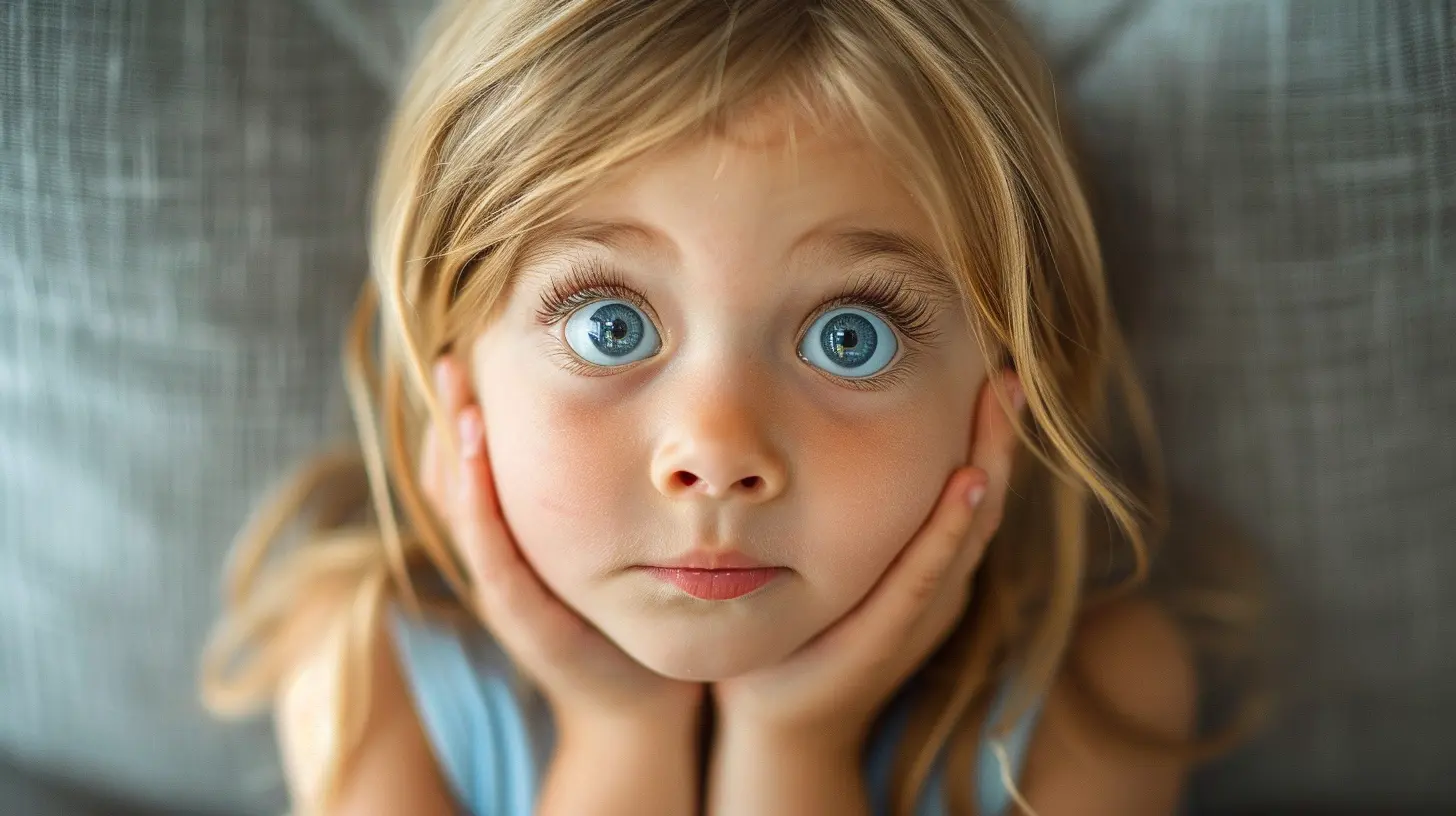
Humor in Everyday Parenting: How to Nurture It
You don’t need to be a stand-up comedian to raise a funny kid. In fact, some of the best humor happens right at the kitchen table or during bedtime stories. Here's how you can sprinkle more laughter into your child’s daily life:Make Room for Playfulness
Set aside time every day to be silly together. Whether you're dancing like dinosaurs or playing “guess that noise,” you’re encouraging humor and connection. It doesn’t have to be structured; spontaneous giggles are often the best kind.Embrace Jokes, Even the Terrible Ones
Yes, even (and especially) the classic “Why did the chicken cross the road?” Kids repeat jokes to test reactions. So when your child tells the same bad pun for the 17th time, crack a smile. They’re building confidence and language skills.Laugh at Yourself
Model resiliency by laughing at your own mistakes. Burnt the toast? Forgot it's pajama day? Shrug it off with a chuckle. Showing your child that it's okay to laugh at yourself teaches them to deal with setbacks in a healthy way.Share Funny Media—Together
Read humorous books, watch age-appropriate comedies, and listen to silly songs. Bring humor into shared experiences, and talk about what made you both laugh. It bonds you while giving insight into your child’s evolving sense of what’s funny.The Dark Side of Humor (Yes, There Is One)
Humor is powerful—but like any superpower, it can go wrong. Sarcasm, teasing, and inappropriate jokes can hurt more than help. That’s where guidance comes in.Teach your child the difference between laughing with someone and laughing at someone. Empathy is key. And if your child is on the receiving end of mean-spirited humor, give them tools to respond confidently—and yes, even with wit, when appropriate.
Using Humor to Tackle Tough Topics
Talking about serious stuff can be, well, serious. But humor can soften the edges of difficult conversations. Whether it’s dealing with anxiety, moving to a new town, or navigating puberty, using light-hearted language or metaphors can make tricky topics more approachable.Of course, timing and tone matter. Not every situation calls for a joke. But a dash of humor can make hard conversations less intimidating—and more human.
Schools & Humor: Why It Shouldn’t Be Left at Home
Let’s talk education. While schools prioritize reading, math, and science, humor often gets left behind. And that’s a missed opportunity.Teachers who use humor in the classroom often find students are more engaged, retain more info, and feel safer taking intellectual risks. A good laugh breaks down barriers and makes learning feel less like a chore. Kids are more likely to raise their hand if they know a wrong answer won’t spark ridicule—but maybe even a little chuckle.
So yes, let’s put algebra on the curriculum—but maybe sneak in a few good puns, too.
Humor as a Coping Tool
Life isn’t always sunshine and popsicles. Kids face stress, fear, and disappointment—just like adults. But humor can be a powerful way to cope.Laughing triggers the release of endorphins (your brain's feel-good chemicals), lowers cortisol (the stress hormone), and increases oxygen intake. It’s like a natural mood-lifter... with zero side effects.
Helping your child find humor in tough moments not only builds resilience, but also empowers them to take control of their emotions. Sometimes, being able to say “Well, THAT was a disaster” with a smile is all it takes to move forward.
The Long-Term Benefits of a Funny Childhood
Children who grow up in a humor-rich environment are more likely to thrive socially, emotionally, and even professionally. They become adults who don’t take themselves too seriously, who can navigate uncomfortable situations with grace, and who are just plain enjoyable to be around.Humor fosters a growth mindset. It teaches kids that it’s okay to try, fail, laugh, and try again. It’s about perspective—finding light even when things get dark.
A Quick Word to Parents
If you’re reading this thinking, “But I’m not funny,” don’t worry. You don’t have to be hilarious—you just have to be present. Kids don’t need perfection; they need connection. And laughter? That’s one of the best ways to connect.Funny faces, goofy dances, little inside jokes—those moments matter. They’re what your child will remember. Not whether your punchline was perfect—but that you were willing to laugh with them.
Final Thoughts
Humor is more than child’s play—it’s a fundamental part of child development. It builds brains, hearts, and friendships. And best of all? It’s contagious. So, the next time your child tells you a ridiculous joke involving a pirate and a banana, laugh. Not because it’s hilarious (though hey, it might be), but because in that moment, you’re helping them grow.all images in this post were generated using AI tools
Category:
Child DevelopmentAuthor:

Austin Wilcox
Discussion
rate this article
2 comments
Rachael McPherson
This article brilliantly highlights the vital role humor plays in child development. It not only fosters resilience and creativity but also strengthens parent-child bonds. Encouraging laughter in daily interactions can significantly enhance emotional intelligence and social skills in children.
June 15, 2025 at 3:58 PM

Austin Wilcox
Thank you for your insightful comment! I'm glad you found the article highlights the important role of humor in fostering resilience and strengthening relationships. Laughter truly is a powerful tool in child development!
Jane McKeehan
Loved this article! Humor truly enhances our children's growth, fostering creativity and resilience. Laughter really is the best tool for joyful parenting! Keep shining!
June 15, 2025 at 2:26 AM

Austin Wilcox
Thank you so much for your support! I'm glad you found the article valuable—humor truly is a powerful tool in parenting!
